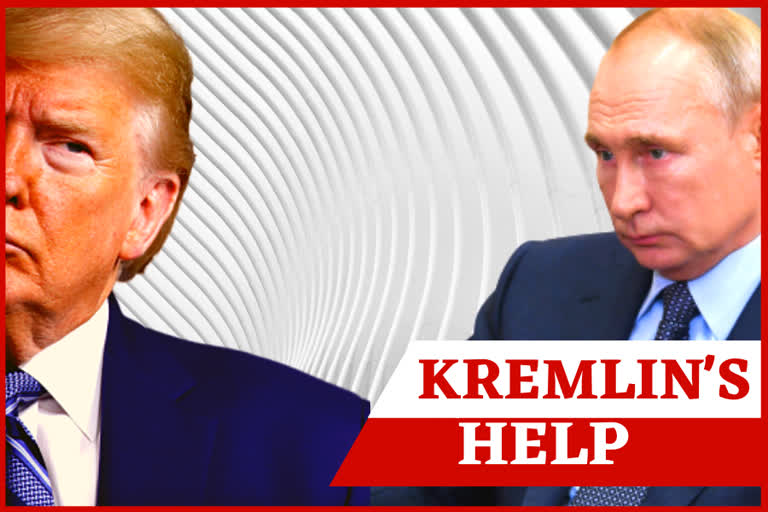Washington: The Trump campaign's interactions with Russian intelligence services during the 2016 presidential election posed a "grave" counterintelligence threat, a Senate panel concluded Tuesday as it detailed in a report how associates of the Republican candidate had regular contact with Russians and expected to benefit from the Kremlin's help.
The report, the fifth and final one from the Republican-led Senate intelligence committee on the Russia investigation, describes how Russia launched an aggressive, wide-ranging effort to interfere in the election on Donald Trump's behalf. It says Trump associates were eager to exploit the Kremlin's aid, particularly by maximizing the impact of the disclosure of Democratic emails that were hacked by Russian military intelligence officers.
The conclusions mark the culmination of a bipartisan probe that spanned more than three years and produced what the committee called "the most comprehensive description to date of Russia's activities and the threat they posed."
The findings echo to a large degree those of special counsel Robert Mueller's Russia investigation, with the report's unflinching characterization of furtive interactions between Trump associates and Russian operatives contradicting the Republican president's claims that the FBI had no basis to investigate whether his campaign was conspiring with Russia.
Read also:Belarus leader says Russia willing to help counter protests
The report was released as two other Senate committees, the Judiciary and Homeland Security panels, conduct their own reviews of the Russia probe with an eye toward uncovering what they say was FBI misconduct during the early days of the investigation. A prosecutor appointed by Attorney General William Barr, who regards the Russia investigation with skepticism, disclosed his first criminal charge on Friday against a former FBI lawyer who plans to plead guilty to altering a government email.
Among the more striking sections of the nearly 1,000-page report issued Tuesday is the committee's description of the close professional relationship between former Trump campaign chairman Paul Manafort and Konstantin Kilimnik, whom the committee describes without equivocation as a Russian intelligence officer.
Read also:Russia to treat any incoming missile as 'nuclear attack'
"Taken as a whole, Manafort's high-level access and willingness to share information with individuals closely affiliated with the Russian intelligence services, particularly Kilimnik, represented a grave counterintelligence threat," the report says.
